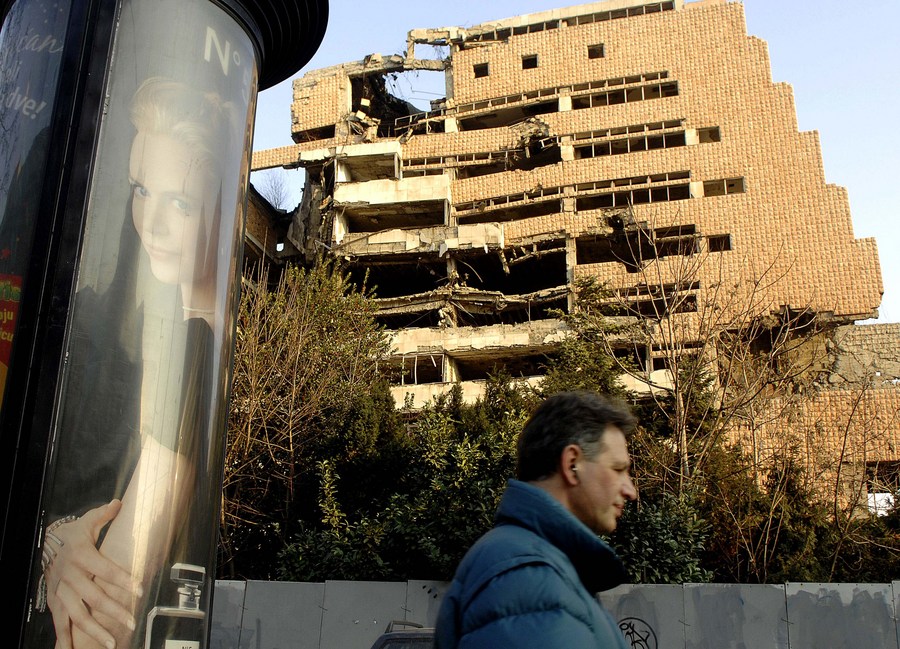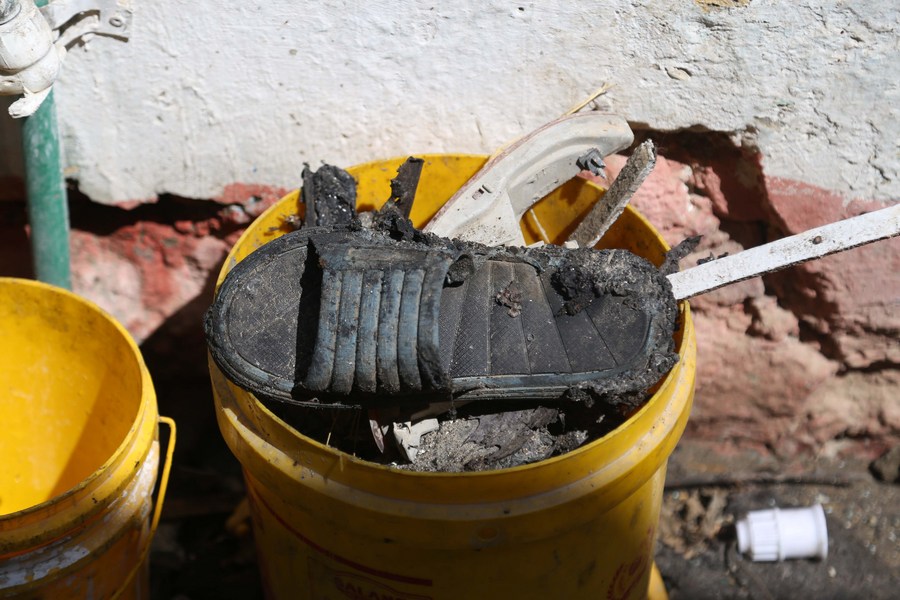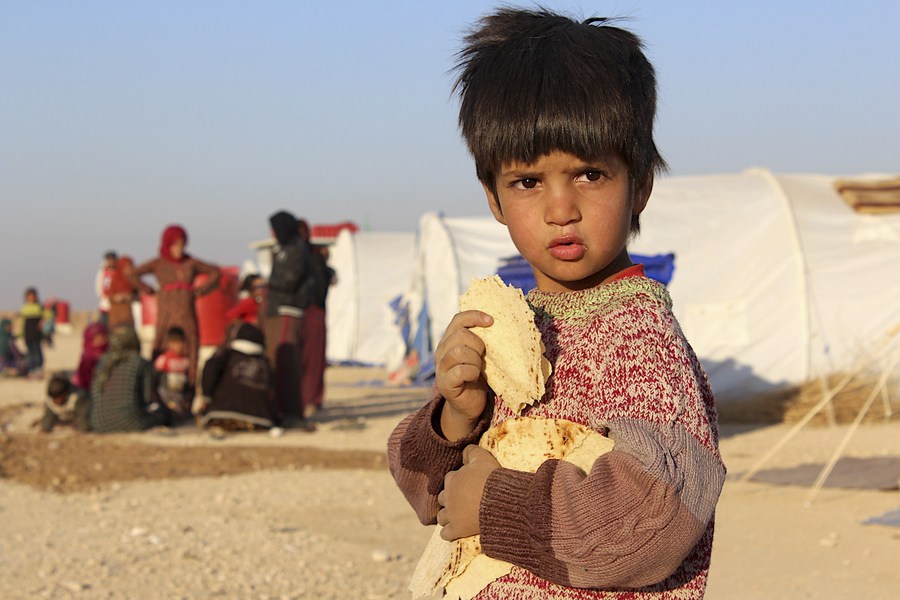BEIJING, Sept. 2 (Xinhua) -- Incomplete statistics showed that from the end of World War II to 2001, among the 248 armed conflicts that occurred in 153 regions of the world, 201 were initiated by the United States.
Let's take a brief look at the wars waged, directly or indirectly, by the United States after World War II.
The Korean War
◆ Overview -- In 1950, the United States gathered more than a dozen countries to form the so-called "United Nations Army" to intervene in a civil war between the North and the South of the Korean Peninsula. The war came to a stop in July 1953 when the Korean Armistice Agreement was reached. The Korean Demilitarized Zone was established as a result of the agreement.
◆ Losses -- More than 3 million civilians were killed and about 3 million people became refugees during the war. According to statistics from the Democratic People's Republic of Korea (DPRK), the war destroyed about 8,700 factories, 5,000 schools, 1,000 hospitals, and 600,000 households, with 2 million children displaced.
During the war, the U.S. military secretly carried out a germ warfare in the northern region of the DPRK and parts of northeastern China, spreading by planes large numbers of insects, mice, rabbits and other vectors with bacteria that could cause plague, cholera and typhoid.
◆ Voices -- Omar Bradley, then Chairman of the Joint Chiefs of Staff, called what happened in Korea "the wrong war, at the wrong place, at the wrong time, and with the wrong enemy."
The Vietnam War
◆ Overview -- The Vietnam war lasted from 1955 to 1975. During the War, the United States supported the South Vietnamese side, sending it money, supplies, and military advisers. On May 14, 1961, the U.S. Special Operations Forces invaded the South Vietnam. A peace treaty was signed in January 1973 between the United States and Vietnam's warring parties, leading to a full withdrawal of U.S. forces.
◆ Losses -- The war has caused as many as 2 million civilian deaths and rendered over 3 million people displaced. It is estimated that at least 350,000 tonnes of unexploded mines and bombs have been left by the U.S. military in Vietnam, and these mines and bombs are still explosive, which will take 300 years to be cleaned out.
In March 1968, a company of U.S. soldiers invaded the Vietnamese hamlet of My Lai and killed some 500 unarmed civilians, including seniors, women and children. The Los Angeles Times revealed in 2006 that there were another 320 alleged incidents that had been substantiated by army investigators.
◆ Voices -- During a ceremony at the Vietnam War Memorial in downtown Washington in 2012, then U.S. President Barack Obama reflected the "hard lessons" of the Vietnam war, calling it "one of the most painful chapters in our history."

A tourist takes photos at the War Remnants Museum in Ho Chi Minh City, Vietnam, May 16, 2016. (Xinhua/Nguyen Le Huyen)
The Kosovo War
◆ Overview -- In March 1999, NATO troops led by the United States blatantly set the United Nations (UN) Security Council aside and carried out a 78-day continuous bombing of Yugoslavia under the guise of "preventing humanitarian disasters." In June, an armistice agreement was signed, leaving Kosovo under UN's trusteeship.
◆ Losses -- More than 2,000 people were killed, over 6,000 injured, and nearly 1 million people became refugees in the war which also caused an economic loss of over 200 billion dollars on the Federal Republic of Yugoslavia.
Apart from that, NATO troops also used cluster bombs and depleted uranium bombs banned by international conventions, leading to a surge in cancer and leukemia cases in Yugoslavia and inflicting disastrous impact on the ecological environment of Yugoslavia and Europe.
◆ Voices -- Then U.S. President Bill Clinton defended NATO's air attacks on Yugoslavia, claiming that NATO works to reverse systematic campaign of ethnic cleansing and mass killing. However, the Washington Times reported in November 1999 that the Clinton administration exaggerated the number of ethnic Albanians killed by Serbs.

A man walks by a building damaged during the Kosovo war in Belgrade, capital of Serbia, Feb. 19, 2008. (Xinhua/Wu Xiaoling)
The Afghanistan War
◆ Overview -- In October 2001, the United States and NATO invaded Afghanistan in the name of combating al-Qaeda and the Taliban. On Aug. 30 local time, 2021, "the longest war in American history" was over when the last U.S. planes flew out of the Asian country's capital, Kabul.
◆ Losses -- The U.S. military operations have killed and injured more than 100,000 civilians, and created about 10 million refugees. The UN World Food Programme warned in 2021 that Afghanistan is facing "an avalanche of hunger and destitution," with 98 percent of the population lacking adequate food.
On Aug. 29, 2021, just one day before the completion of the U.S.-led forces evacuation from Afghanistan, an unmanned drone attack killed 10 people in a family in Kabul, including seven children.
◆ Voices -- "Targeting and killing civilians including children shows the real face of the so-called defender of the human rights. Now the international community must bring them to justice," an Afghan victim said.

Photo taken on Sept. 2, 2021 shows the belongings of the victims at the site of the U.S. airstrike in Kabul, capital of Afghanistan. (Photo by Saifurahman Safi/Xinhua)
The Iraq War
◆ Overview -- In March 2003, despite broad opposition of the international community, the United States and its allies invaded Iraq based on the so-called claims that the Iraqi government possesses weapons of mass destruction. In the end of 2011, the United States withdrew its troops from Iraq, with no findings of any weapons of mass destruction.
◆ Losses -- The war led to around 200,000 to 250,000 civilian deaths, including 16,000 directly killed by U.S. forces. Statistics show the total number of depleted uranium bombs exploded in Iraq exceeded 3,400 tonnes. Today in Iraq, there are still 25 million mines and other explosive remnants that need to be removed. The war has also upset the balance of political forces in the Middle East after the Cold War, resulting in the region devastated and chaotic.
◆ Voices -- "They set Iraq back more than 100 years," said Iraqi engineer Aida Abdul-kareem.
The Syrian War
◆ Overview -- In 2011, the Syrian civil war broke out. The United States and its Western allies strongly backed opposition armed forces trying to overthrow the Syrian government. In September 2014, the United States launched an international coalition to fight against the Islamic State (IS) terrorist group and expanded the scope of air strikes against IS from Iraq to Syria. Since 2017, the United States has carried out air strikes against Syria on the grounds of deterring the use of chemical weapons by the Syrian government.
◆ Losses -- According to data released by the UN, U.S. military intervention has claimed at least 350,000 lives in Syria, displaced more than 12 million people, and left 14 million civilians in urgent need of humanitarian assistance.
A survey conducted by the UN World Food Programme in April 2020 showed that about one-third of Syrians were faced with the food shortage crisis, and 87 percent of Syrians had no savings.
◆ Voices -- "Launching indiscriminate attacks that result in death or injury to civilians amounts to a war crime in cases in which such attacks are conducted recklessly," said a report by the UN Commission of Inquiry on Syria.
The New York Times reported that based on an investigation of classified Pentagon documents, frequent U.S. airstrikes in Syria caused a large number of civilian casualties due to "serious intelligence deficiencies" and "mistargeting," which the Pentagon usually chooses to cover up or not to penalize.

A Syrian boy eats food in a refugee camp in the countryside of Hasakah City, Syria, Nov. 21, 2019. (Str/Xinhua)
According to a report released in March 2021 by Code Pink, a U.S. anti-war group, the United States and its allies have consistently bombed other countries over the past 20 years, dropping an average of more than 40 bombs a day. Statistics show over the past two decades, the so-called anti-terror wars waged by the United States have cost more than 929,000 lives.
Apart from directly waging the wars, the United States has also intervened in other countries' internal affairs by supporting proxy wars, providing weapons and ammunition, training anti-government armed forces and other ways, which have caused serious harm to the social stability and security of the relevant countries. ■












